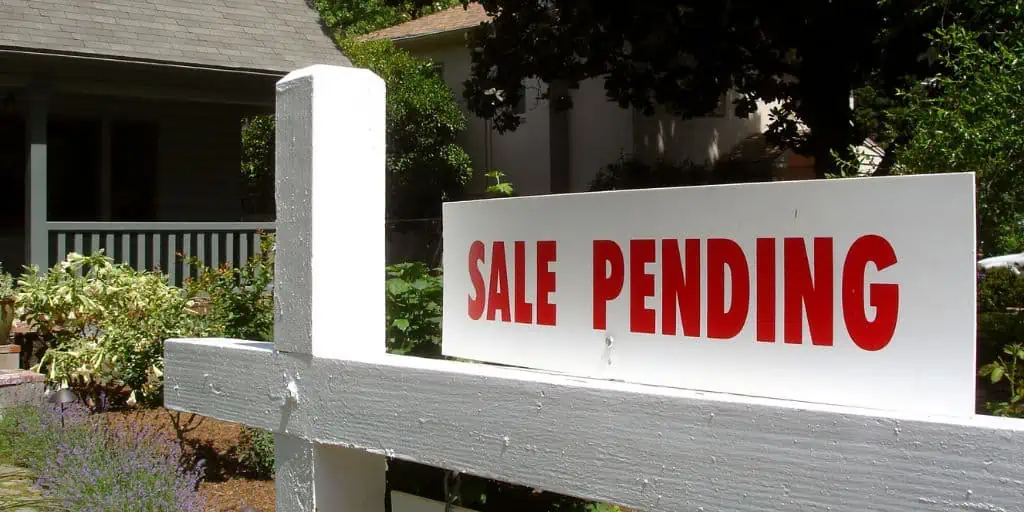What Is a Closing Contingency?
REtipster does not provide legal advice. The information in this article can be impacted by many unique variables. Always consult with a qualified legal professional before taking action.
Shortcuts
- A closing contingency is a clause in a real estate purchase agreement that permits the buyer to legally walk away if and when one’s property is not sold by the deadline, typically the closing date.
- Home sale, kick-out, financing, title, inspection, appraisal, and homeowners insurance contingencies are other common conditions buyers and sellers add.
- Home sale and closing contingencies can be as long as 90 days, making it difficult for sellers to entertain offers from more generous bidders and get rid of their property faster.
- Backup offers seldom get accepted since most primary buyers tend to close on properties.
- Real estate contracts with contingencies rarely fall through, proving that such conditions help deter both sides from doing anything that may sabotage the deal.
What Are Real Estate Contingencies?
In a real estate transaction, contingencies are conditions or events that must occur before the sale is considered final. Either party in the transaction (i.e., the buyer or the seller) can initiate them. These contingencies are negotiable[1] and should be clear enough to ensure both sides understand the terms.
Let’s say a buyer has offered to purchase a new home but needs to sell their current home to afford it. So they add a closing contingency to the contract that specifies that the purchase contract is only enforceable if their existing home is sold by a certain date.
If the deadline arrives and the current home hasn’t sold, the buyer can legally back out of the contract without penalty due to the closing contingency clause. This protects the buyer from being forced to buy a new home without the funds to do so.
RELATED: How a Mortgage Closing Works (Seller Financing Tutorial)
Types of Contingencies in Real Estate
Several types of contingencies can be included in a real estate contract. Here are a few of the most common ones:
- Inspection Contingency: The buyer has a specified amount of time to have the home inspected. If there are issues that the inspection uncovers that the buyer is not comfortable with, and if the buyer and seller cannot agree on repairs or a price reduction, the buyer can back out of the contract.
- Appraisal Contingency: This contingency protects the buyer if the property is appraised at a value less than the purchase price. If the home doesn’t appraise for the agreed-upon price, the buyer can renegotiate with the seller, ask the lender for a second appraisal, bring more money to the table, or walk away from the deal.
- Financing Contingency: This gives the buyer a certain amount of time to obtain a loan to purchase the property. If the buyer can’t get a loan within that timeframe, they can back out of the contract without penalties. This is one reason for buyers to get pre-approved for a loan before house hunting to prevent any issues with this contingency.
- Home Sale Contingency: In this case, the buyer has a specified amount of time to sell their current property before proceeding with the new home purchase. The contract may be voided if the buyer’s existing home does not sell in the allotted time.
- Title Contingency: Before the closing, a title company will search to ensure that the title on the property is clear, meaning there are no liens, claims, or clouds on the title. If issues are discovered, the buyer has the right to cancel the contract.
Each contingency provides a level of protection for the buyer during the buying process. It’s important to note that sellers might also have contingencies, though they’re less common. As with all real estate transactions, buyers and sellers should consult an experienced real estate professional or attorney to understand their rights and responsibilities.
Contingency clauses protect both parties’ best interests and reduce risks involved in real estate transactions[5]. Most real estate contracts contain contingencies, and over 95% are successful[6]. However, demanding buyers and unreasonable contingencies may turn off sellers, especially in a hot real estate market.
How Long Does a House Stay in Contingent Status?
Home sale and closing contingencies typically last 30 to 90 days[7]. However, many sellers are reluctant to agree to these conditions since they tie the seller to a single buyer who may ultimately not commit to the purchase.
Without a kick-out clause, the seller has to wait for the outcome of either contingency and even with one, listing a house as “under contract” may deter other potential buyers. After all, many buyers prefer to deal with sellers willing to prioritize them.
How Often Do Backup Offers Get Accepted?
Lenders do not typically accept backup offers, which allow a secondary buyer to step in if the primary purchase agreement falls through.
Although backup offers can benefit a buyer who arrives later but is still interested in purchasing the property, the vast majority of primary buyers end up closing the deal[8].
Contingent vs. Pending
A contingent property means that the seller has accepted an offer but the sale is subject to certain conditions, while a property is pending if the seller has accepted an offer and is in the process of closing the sale.
Property is contingent when the seller has accepted an offer from a buyer, but the sale is subject to certain conditions. The contract usually specifies these conditions and must be met for the sale to go through.
Common contingencies include the buyer’s ability to obtain financing, a satisfactory home inspection, or the sale of the buyer’s current home, as described earlier in the article. If any of these contingencies aren’t met, the sale can fall through.
On the other hand, “pending sale” means that the seller has accepted an offer and the sale is in progress. During this period, the buyer usually conducts inspections and obtains financing, and the seller continues to show the property until the sale is complete.
In other words, a property is pending when the seller has accepted an offer, but the transaction hasn’t closed yet.
The main difference between a pending and contingent sale is the level of certainty involved. A pending sale has fewer contingencies and is closer to a done deal, whereas a contingent sale has more uncertainties and is still subject to certain conditions. As an investor, you might have more success making an offer on a contingent property than a pending one[9].
You may encounter the terms “contingent” and “pending” in many real estate contracts, and initially, they might seem interchangeable but mean different things. Therefore, when browsing real estate listings, it’s important to understand the difference between these terms to avoid confusion and make informed decisions.
Sources
- Murad, A. (2016, January 15.) 11 Things You Need to Know About Real Estate Negotiations. Entrepreneur. Retrieved from https://www.entrepreneur.com/starting-a-business/11-things-you-need-to-know-about-real-estate-negotiations/253732
- Axelton, K. (2020, June 23.) Why Would a Mortgage Application Get Denied? Experian. Retrieved from https://www.experian.com/blogs/ask-experian/why-would-a-mortgage-get-denied/
- Giusti, A. (2020, September 24.) Don’t let common property title issues derail your home closing. Bankrate. Retrieved from https://www.bankrate.com/mortgages/common-property-title-issues/
- Common Problems Found During Home Inspections. (2015, May 18.) HGTV. Retrieved from https://www.hgtv.com/lifestyle/clean-and-organize/common-problems-found-during-home-inspections
- Taylor, G. (2020, October 7.) 19 Red Flags to Watch Out For When Buying a Home. Bob Vila. Retrieved from https://www.bobvila.com/slideshow/19-red-flags-to-watch-out-for-when-buying-a-home-53080
- How often contingent offers fall through. (2022, January 19.) Chase. Retrieved from https://www.chase.com/personal/mortgage/education/buying-a-home/how-often-contingent-offers-fall-through
- Melone, S. (2022, August 30.) What Is the Difference Between Home Sale Contingency & Home Close Contingency? PocketSense. Retrieved from https://pocketsense.com/difference-between-home-sale-contingency-home-close-contingency-1820.html
- Graham, K. (2022, August 2.) Should You Make Or Accept A Backup Offer On A Home Sale? Rocket Mortgage. Retrieved from https://www.rocketmortgage.com/learn/should-you-make-a-backup-offer-on-a-home
- Dellinger, A. (2022, August 30.) Contingent vs pending: What’s the difference? Bankrate. Retrieved from https://www.bankrate.com/real-estate/contingent-vs-pending/







